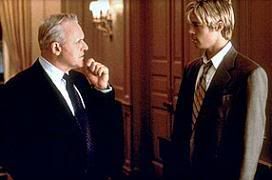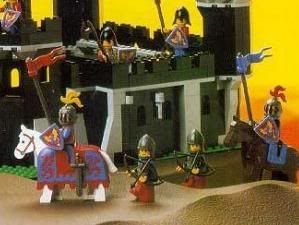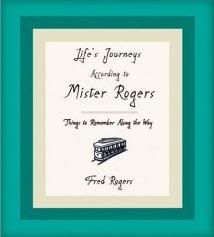Apologetics can be defined as the practice of using evidence to defend Christianity. A few years ago I was keenly interested in it.
I labored for a long time investigating philosophy, forensics, and science, but at one point my interest died suddenly and completely.
How do I begin?
 | Over a period of three or four years I had read a number of non-Christian materials and some apologetics material with the express intent of having a ready Christian response. I read the Book of Mormon (cover to cover), Farewell to God by Charles Templeton, The Case for Christ, an intro to Derrida, The God Who Is There by Schaeffer, and lots and lots of Plato. I read a lot more than that, and I'm not even counting the ones I had to do for class! |
At some point in my reading I began to do devotions less often. I couldn't fit the words of Christ into any system described by an apologist, and I began to favor the message of the theologians and scholars.
One day I had to go to the hospital in Lafayette for an appendectomy. I was reading Strobel and I came across an interview with a professor who said faith was more important to the Christian life than reason. How I hated those words! In my spirit I demanded he have "justification" for his claims. He quoted Jesus saying:
"Blessed are those who do not see and still believe."
And so I spent hours and hours doing mental gymnastics with myself trying to explain Christ's words.
While I sat in my hospital room they brought in a Mormon who I got to know. He was a youth group leader and his kids were so devoted to him. They brought him all kinds of cards and even made a giant postcard, which they all signed.
I considered myself an expert in witnessing to Mormons. I spent hours discussing the Bible with a certain bishop who (I believe) still lives a few blocks from my house. I also spent a spring break in Utah witnessing to the Mormons at BYU and St. George.
I shared my faith and I was very careful to sound as intelligent as I could about it. The more intelligent I tried to sound the more futile my words sounded to me. Part of the problem was a voice in the back of my mind saying: "You can say anything you want because you are so superior to him!"
This was my flesh speaking to me. The voice my apologetic training had cultivated.
The Mormon man said, 'Look, I was going door-to-door in England and I met a guy who covered his hands over his ears and shouted as loud as he could. Then he slammed his door in my face. I don't want to stop listening to people, but to me faith means trusting God even when things look different.'
At that moment I considered the Mormons to be full of lies. I still do.
But I thought about how he had resolved to trust God even when everything seemed to demand the opposite response.
Logic, reason ... even objectivity itself.
The anesthesiologist came in and said, "Now listen ... strange things happen in the operating room. People get attacked by Zebras in the streets. It's terrible, but it's very rare. Don't worry about it."
As silly as it probably sounds this was one of the first times in my life I had seriously considered dying. I looked at Stobel's book and asked myself if the materials I had read had given me one proof that there was going to be an afterlife if I died during surgery.
I thought and thought.
I considered many persuasive arguments, but nothing convinced me. They started to pull me into the operating room and I thought to myself, "Wait! Stop! This is madness! I could die here! I need to do something!"
As my thinking slowly gave way to sleep I thought about the Mormon believing without seeing and I envied him. In the secrecy of my thoughts, nothing seemed more beautiful to me. In a moment of infinite clarity, I found it was the most wonderful thing I had ever considered (and to think I would have despised it a few hours earlier!).
The surgery was successful and I went back to school three days later, but even as I left the hospital I distracted myself with the expressed intention of forgetting everything that had happened there.
The task at hand was convincing teachers that I understood Boethius and Aquinas. I hid my reflections in a distant, dark corner of my mind. I told myself never to go looking there again.
Now it so happened that one day I decided my work load was so small (15 units) that I could be studying more non-Christian material to bring people to Jesus.
In highschool I was introduced by my philosophy teacher to an obscure Danish writer who a lot of unbelievers were reading. And so I decided to read some of his material for myself.
 | So one day at the university library I looked up 'Fear and Trembling' in the card catalogue. I spent two months reading the book looking for a way to bring these people to Jesus. After all, he was writing about Abraham.
I thought I knew a lot about Abraham. |
Instead of finding a way to bring them to Jesus, I instead found that not only (1) did I not understand Kierkegaard's arguments (2) I did not even know what he was trying to say! But my spirit was drawn to his writings.
I forgot about the strange writer for a while.
One day I found myself in the philosophy section of Borders. I saw a book titled, An Introduction to Kierkegaard. I was glad to find a simple explanation of what this man was saying. It was here that I read this sentance:
"All decisiveness inheres in subjectivity.
To pursue objectivity is to be in error."
My first thought was, "No wonder these people need Jesus! They're nuts if they think like this!"
I was enraged as I walked toward the exit. "How could anyone think this way?!".
I stopped in the aisle and thought, "If I'm going to tell these people about Jesus, I need to know what is driving them to accept this absurdity. But when have I ever viewed anything in this way?"
My eyes widened as I recalled a distant memory. When was it?
My devotions.
And so I began to rethink my relationship with reason and evidence.
I considered that there were a number of Bible verses which seemed to categorically oppose apologetics. "If anyone thinks he knows anything, he does not know as he ought to know." "Trust in the Lord with all your heart, and lean not on your own understanding." "Knowledge puffs up but love builds up". Etc.
For my purposes here it is enough to say that they weighed heavily on my thoughts and the more I tried to reason them the more it felt like I was really trying to explain them away.
My roommate in college, Christopher, had a large collection of DVDs. One day I went through them and saw a movie called Meet Joe Black. This seemed like a movie that was trying to say something, so I figured it would be good to have a Christian response to it.
The movie blew me away. |  |
Here was the story of a man, Bill Perish, who was trying to live an honorable life. Early in the movie he encounters death, and this encounter changes his entire perspective on everything.
He suddenly learns the importance of being honest about his priorites ... even if they cost him everything. About listening to that inner voice the rest of the world cannot hear. And it is only by finding this inner strength that he is able to oppose death, which he does. He wasn't trying have a valuable life in the eyes of others.
If that description seems a little funny, I understand.
I simply cannot explain it.
After watching the film I was a different person. The person who pushed play to watch the movie was not the same person who pushed stop. When it was over I sat on the couch and I wept.
I wept and I wept and my other roommate, Eric, had no idea what to think about it.
I decided right then, that very night that my relationship with God was going to be under completely different terms. I didn't have a secret stash of marijuana or a party lifestyle, but I was certain of this: my spiritual life was a big lie.
Except I wasn't lying to my parents or my friends. I found that I was lying to myself and to God.
I decided I was going to do it for real - even if no one understood what was going on.
To sum up my change in perspective: there are only two domains, the world everyone can see (the external domain) and the heart that only God can see (the internal domain).
In the world everyone runs after two things: the acceptance of other people (which is external) and distractions (which are also external). What are they distractions from? They are distractions from simply this question: "Is MY life worth living?"
... A question the theologians have hardly any interest in answering ...
In matters of spirit things are different. Here the important person isn't necessarily the one with the most popularity, the most money, the most good appearances. Here the question is not how "good-looking" a thing is, for the spirit knows exactly what it finds good - and if it finds itself to be good. This is the only place a person can find to exist as themselves.
Consider the merchant who found the treasure in a field. He buried it, and he then sold all his possessions to buy that field. To the world around him he must have looked crazy. Why was he spending so much money on this piece of property? Who could understand it?
Perhaps only the merchant could understand before he could show off his physical treasure. As believers we cannot show the riches God has in store for us right now, and so who can understand us here in this life?
So much for explaining subjectivity - to live as a single individual. You either want to live that way or you do not - I can't make that choice for another person.
To me apologetics is a great evil - a betraying of Jesus with a kiss - a supreme slander against God - a total failure of expressing devotion to Him.
Labels: Angst, Death, Kierkegaardia











